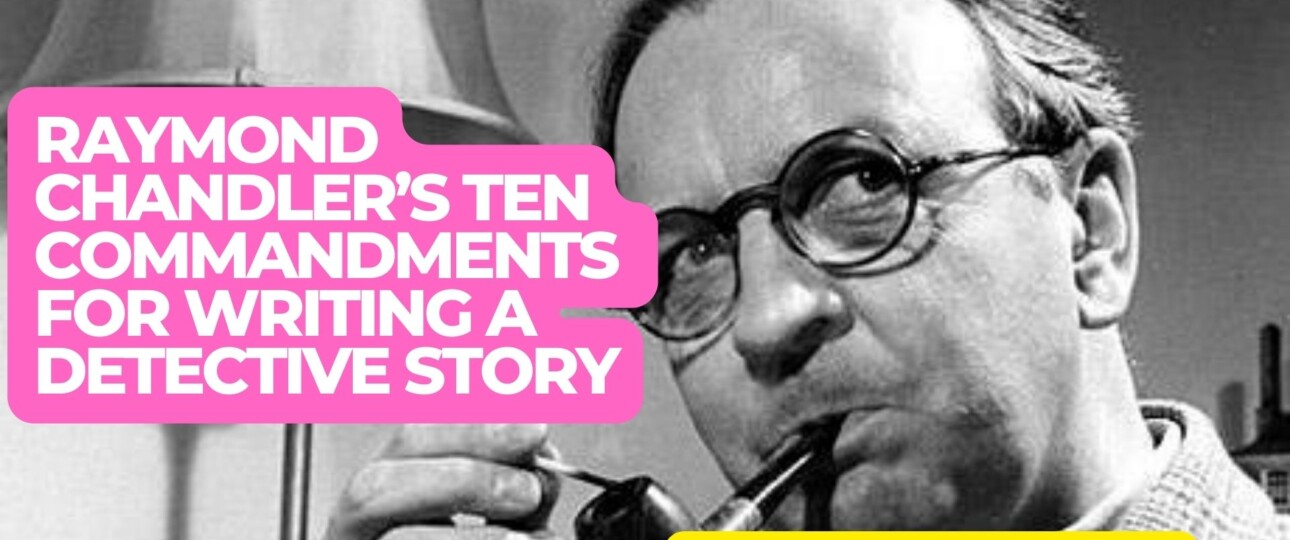Raymond Chandler’s, purveyor of the hardboiled detective! Following the proliferation of the locked room mystery of the 1920s and 1930s, Chandler’s style of writing crime fiction was in many ways the polar opposite. Focussing not inwardly and in a confined space, but venturing out into the world and into the dark underbelly of the city; his focus was on people rather than place, in particular those who are morally ambiguous.
Let’s take a look at what he believed was the perfect recipe for crime fiction!
The Ten Commandments
1) It must be credibly motivated, both as to the original situation and the dénouement.
2) It must be technically sound as to the methods of murder and detection.
3) It must be realistic in character, setting and atmosphere. It must be about real people in a real world.
4) It must have a sound story value apart from the mystery element: i.e., the investigation itself must be an adventure worth reading.
5) It must have enough essential simplicity to be explained easily when the time comes.
6) It must baffle a reasonably intelligent reader.
7) The solution must seem inevitable once revealed.
8) It must not try to do everything at once. If it is a puzzle story operating in a rather cool, reasonable atmosphere, it cannot also be a violent adventure or a passionate romance.
9) It must punish the criminal in one way or another, not necessarily by operation of the law…. If the detective fails to resolve the consequences of the crime, the story is an unresolved chord and leaves irritation behind it.
10) It must be honest with the reader: Chandler’s list was written so as to critique the golden age writers such as Agatha Christie and Dorothy L. Sayers, whose stories do not mirror real life. Particularly not the real lived experience of the typical crime fiction reader. Chandler, then, sought to create place and character with whom we could see mirror images of our own towns and people; rather than hide the gore and violence as golden age writers did, he shone a light on them for all to see.
Over to you
How do you feel about these rules? Are there any you feel are missing?




















